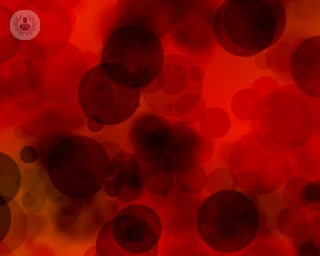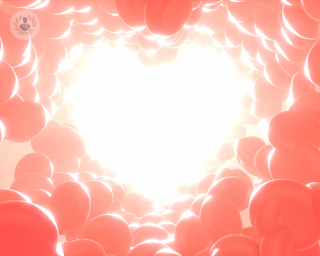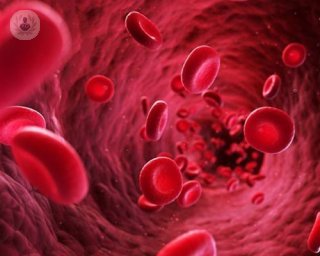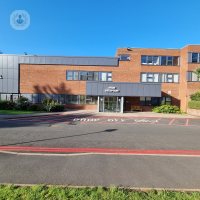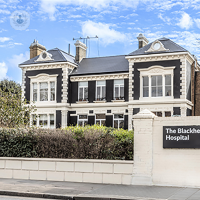Anaemia
Dr Michael Potter - Haematology
Created on: 03-12-2013
Updated on: 05-16-2023
Edited by: Carlota Pano
What is anaemia?
Anaemia is a condition in which there is a low concentration of haemoglobin in red blood cells, or a deficiency in the number of red blood cells themselves. Red blood cells carry oxygen from the lungs to cells throughout the rest of the body, and haemoglobin is an iron-rich protein that gives the blood its red colour and binds to oxygen molecules, allowing red blood cells to carry them.
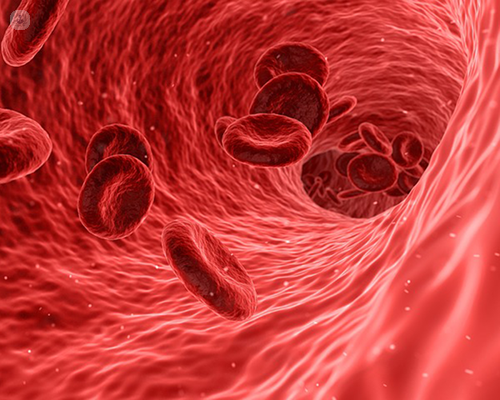
What are the different types of anaemia?
There are many different types of anaemia. The main ones include the following:
- Iron-deficiency anaemia
- Folate deficiency anaemia
- B12 deficiency anaemia
- Anaemia due to chronic disease
- Haemolytic anaemia (abnormal breakdown of red blood cells)
- Aplastic anaemia
- Pernicious anaemia
- Sickle cell anaemia
- Thalassaemia
What are the symptoms of anaemia?
There are quite a number of common symptoms of anaemia. The most common ones are:
- fatigue/lack of energy
- weakness
- shortness of breath
- dizziness
- palpitations
If the anaemia becomes severe, it can cause an increased heart rate, which may also be accompanied by chest pain, and can even lead to heart attacks. Other alarming symptoms are:
- pale skin
- nails that break easily
- pica (the desire to eat non-food items, such as ice or dirt)
- sore tongue
- jaundice (if the anaemia is related to abnormal breakdown of red blood)
What are the main causes of anaemia?
There are three main causes of anaemia:
- Blood loss
- Impaired red blood cells production
- Increased destruction of red blood cells
These factors may be caused or exacerbated by other conditions. For example, more blood than normal may be lost during an injury because of clotting issues such as haemophilia; the lack of production of red blood cells may be due to an autoimmune disorder or infection that damages the bone marrow responsible for creating red blood cells; and the rapid destruction of red blood cells may be the result of hereditary spherocytosis, a disease that makes red blood cells too fragile.
Also, the body needs vitamins, minerals and nutrients such as iron, vitamin B12, or folic acid to make red blood cells. Deficiencies in these can also contribute towards anaemia, meaning that conditions like coeliac disease, which affect the intestine’s ability to absorb the constituents of digested food, can lead to anaemia.
Other possible causes include:
- medications
- diseases such as cancer, ulcerative colitis, or arthritis
- genetic factors (especially in thalassemia and sickle cell anaemia)
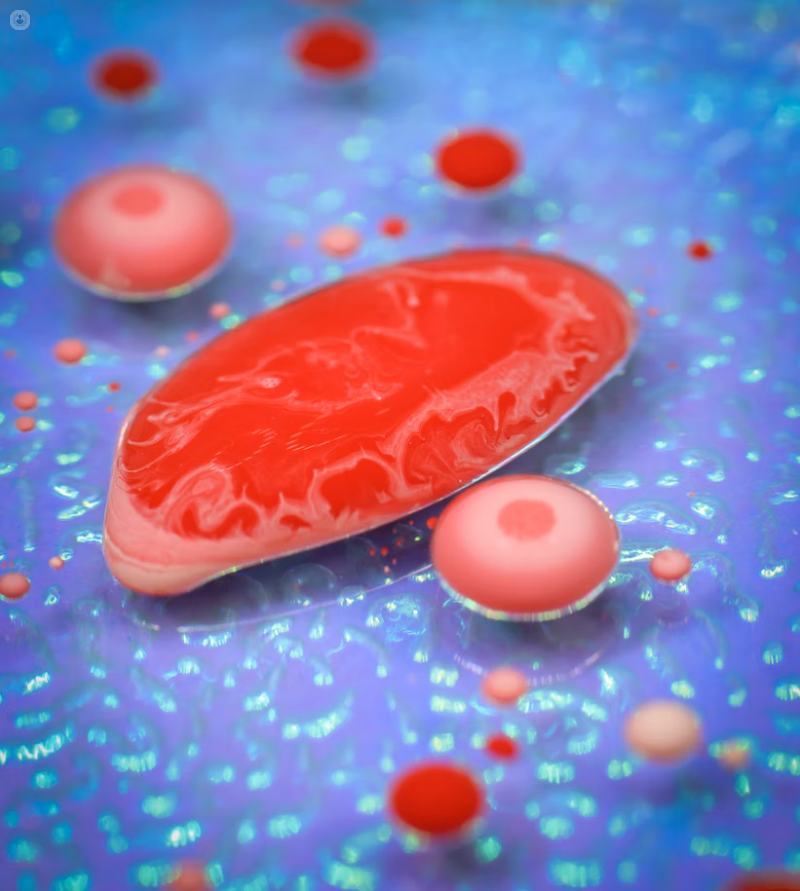
Can anaemia be prevented? If so, how?
To prevent some episodes of anaemia, especially those that are related to iron and vitamin deficiency, it is advisable to follow a strict diet or take food supplements.
How is anaemia treated?
The treatment of anaemia will depend on the type, cause, and severity of the anaemia. The doctor may recommend:
- Changes in diet or supplements – increase the intake of iron, vitamin B12, folic acid or vitamin C
- Medication – this may include antibiotics to treat infections, hormones to decrease menstrual bleeding, or a number of other possible treatments.
- In severe cases, blood transfusions, stem cells, or bone marrow transplants may be needed.
Which specialist treats anaemia?
A haematologist is the specialist that treats anaemia.
What can happen if anaemia is left untreated?
If left untreated for too long an amount of time, anaemia, particularly iron-deficiency anaemia, can lead to severe health complications, such as heart failure, as well as the development of an enlarged heart. If you are pregnant with anaemia that has been left untreated, premature birth, foetal death, and low birth weight are all possibilities.
Is anaemia hereditary?
There is no definitive answer to this question, but various hereditary disorders, such as thalassaemia, can certainly cause anaemia.
What is the main potential anaemia-related complication?
People who suffer from anaemia over a long period of time can eventually develop a condition known as hypoxia, where the body simply does not have sufficient oxygen levels, and, as a direct result, does not function as it should.
What are the main risk factors?
Unfortunately, there are some genetic factors that can increase one's chances of developing anaemia. Not eating enough meat can also significantly increase one's chances of developing iron-deficiency anaemia, the most common type of anaemia.
Is anaemia curable?
Not all types of anaemia can be cured. Iron-deficiency anaemia, though, is certainly curable, with patients typically curing themselves of this specific type of anaemia by taking supplements and modifying their diet. Anaemia due to chronic disease, sickle-cell anaemia, thalassaemia, and autoimmune haemolytic aneamia are the types of anaemia that cannot be cured.

